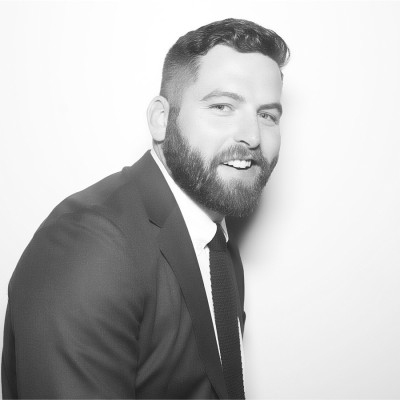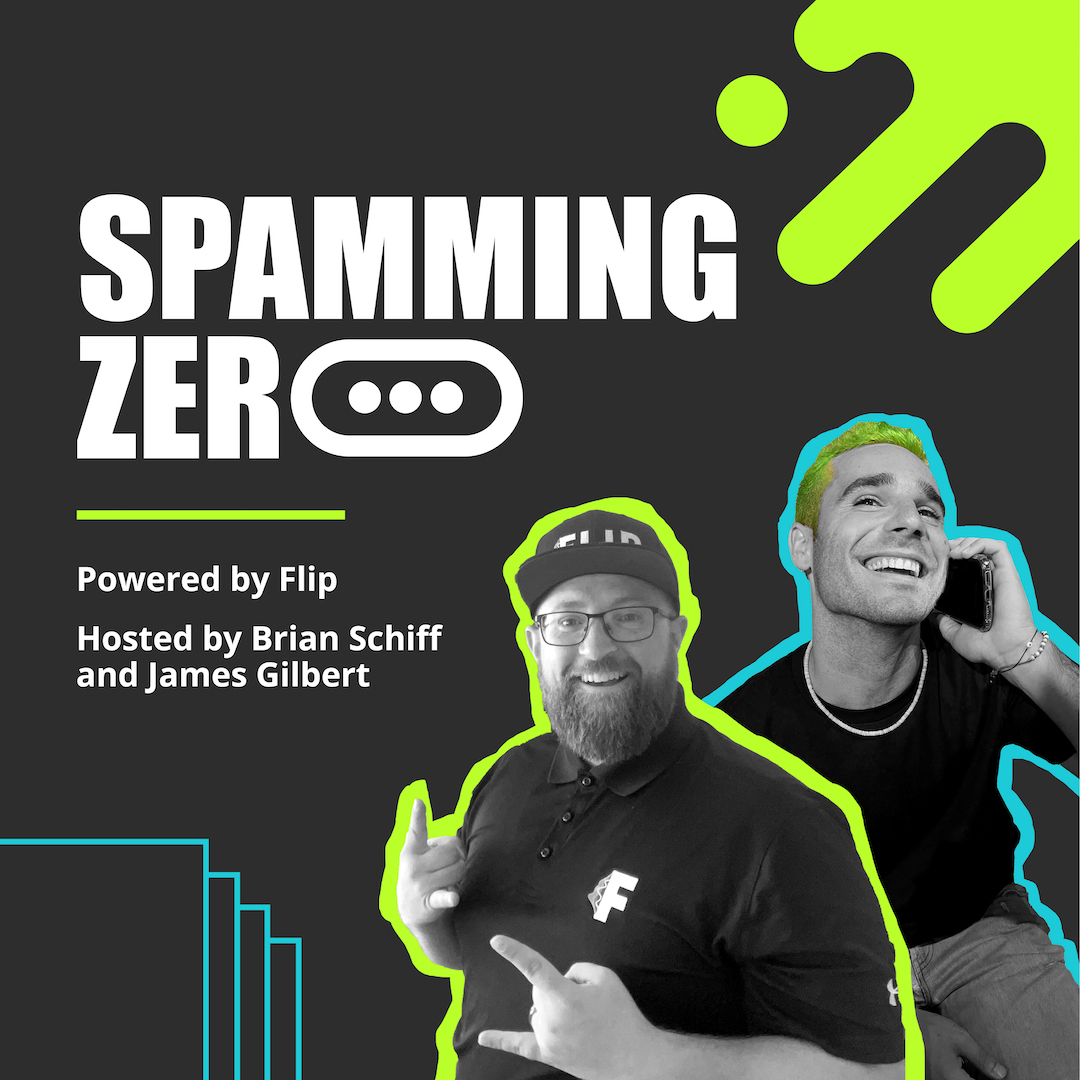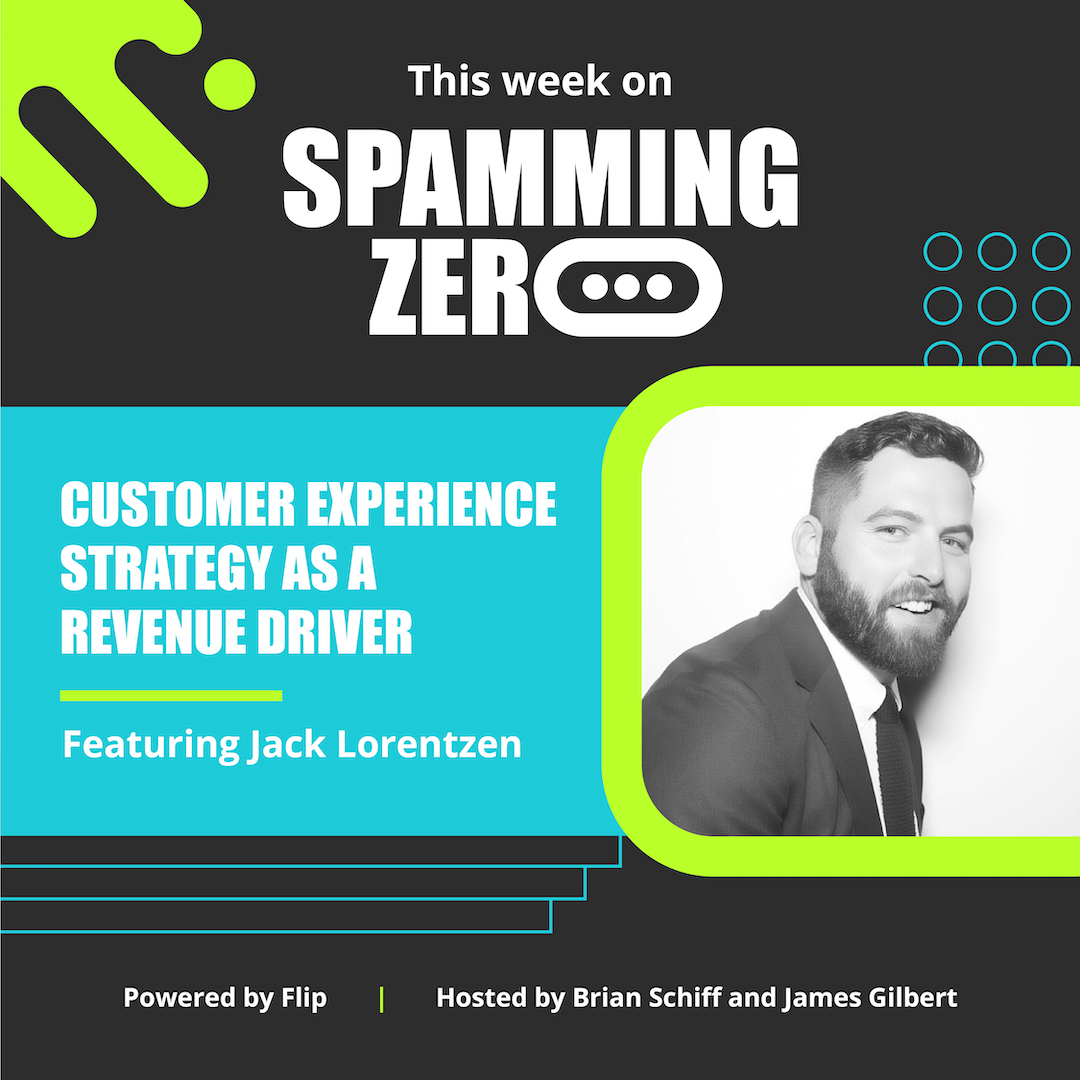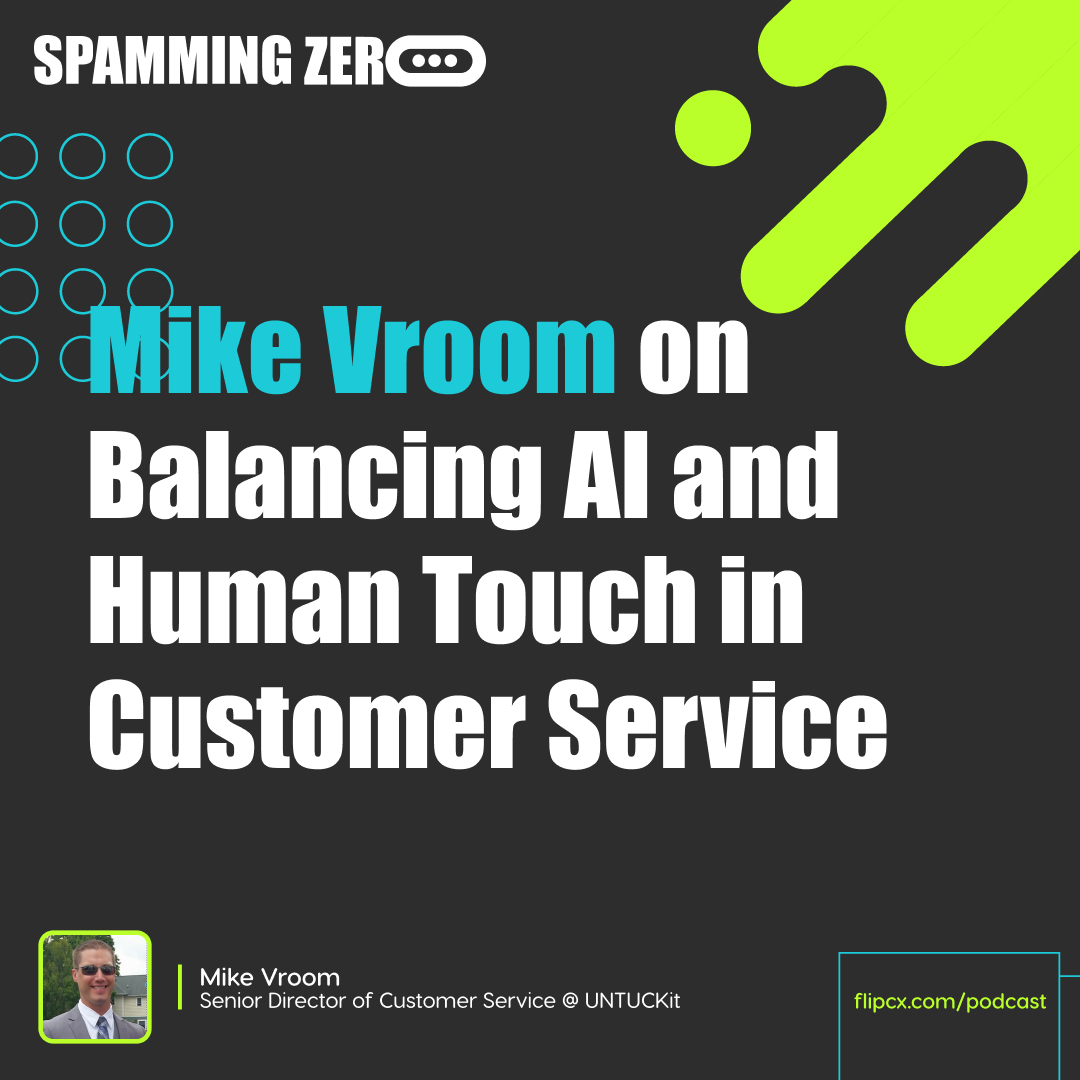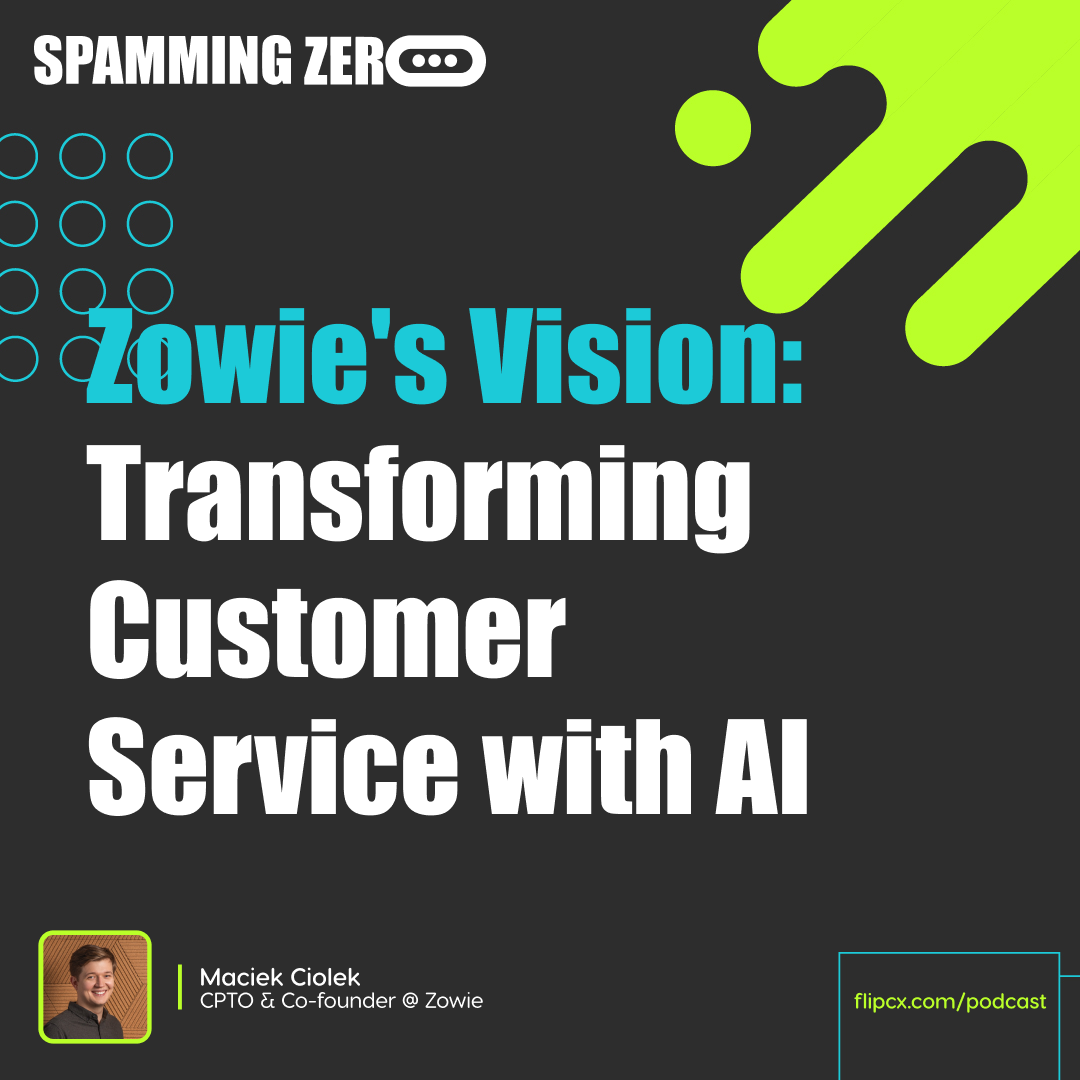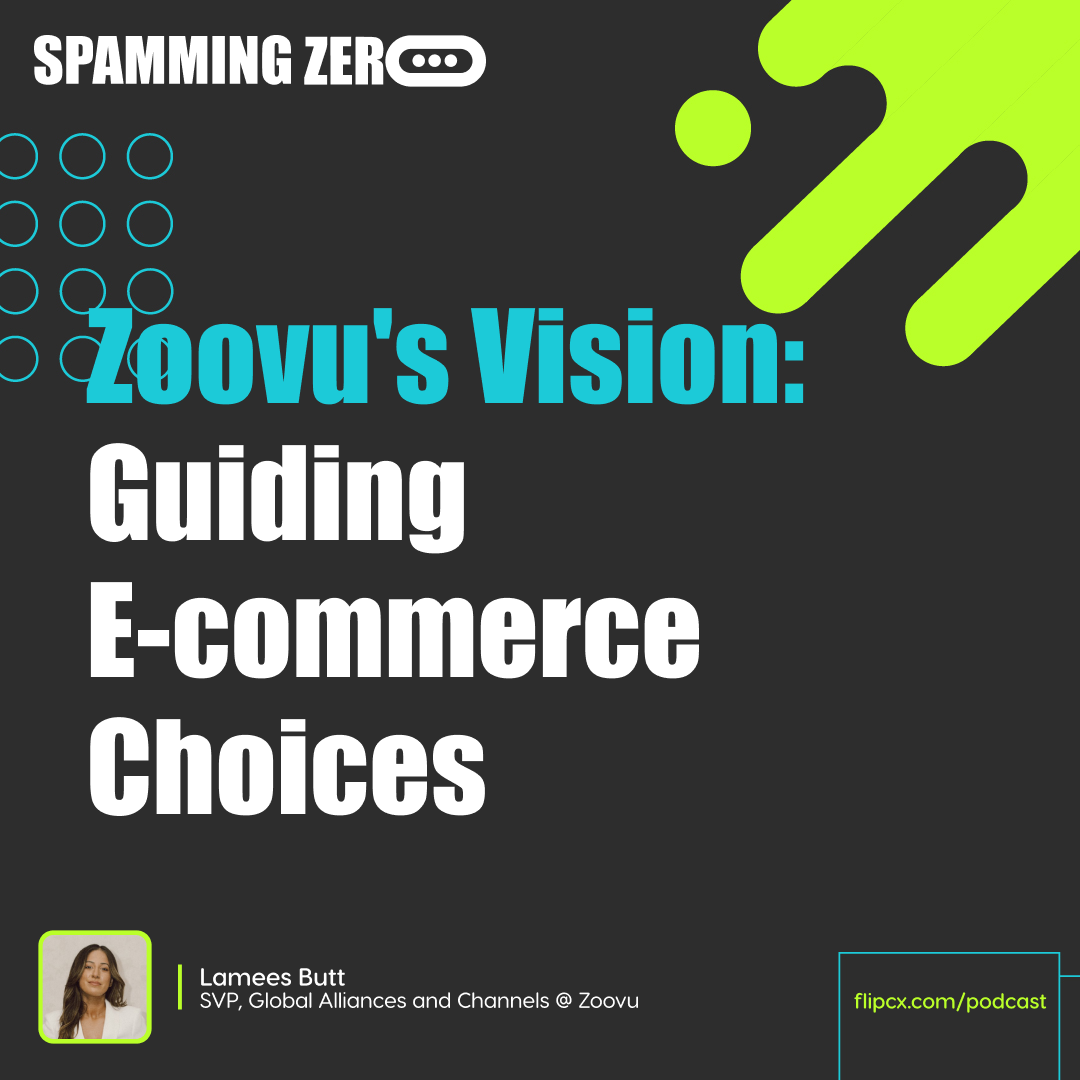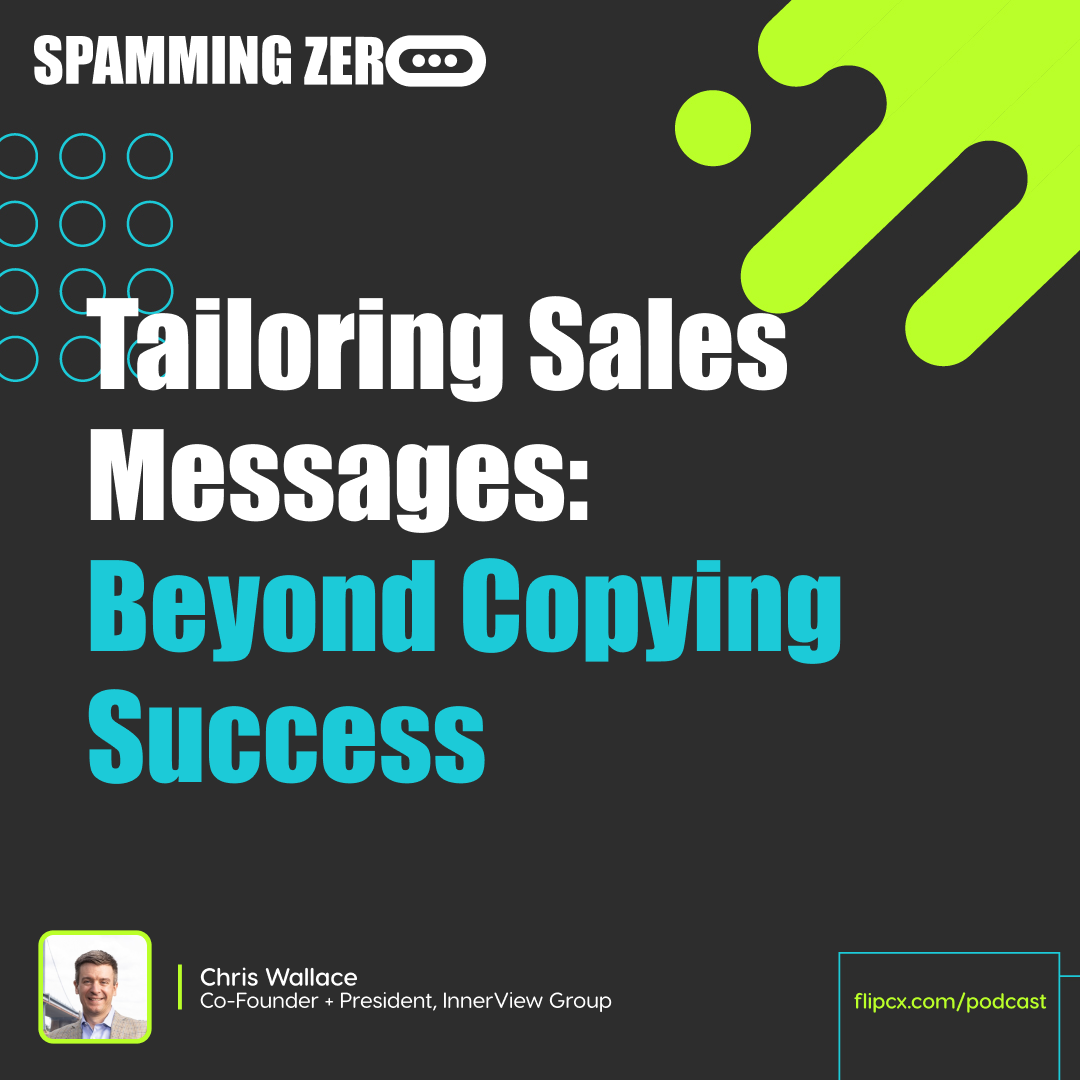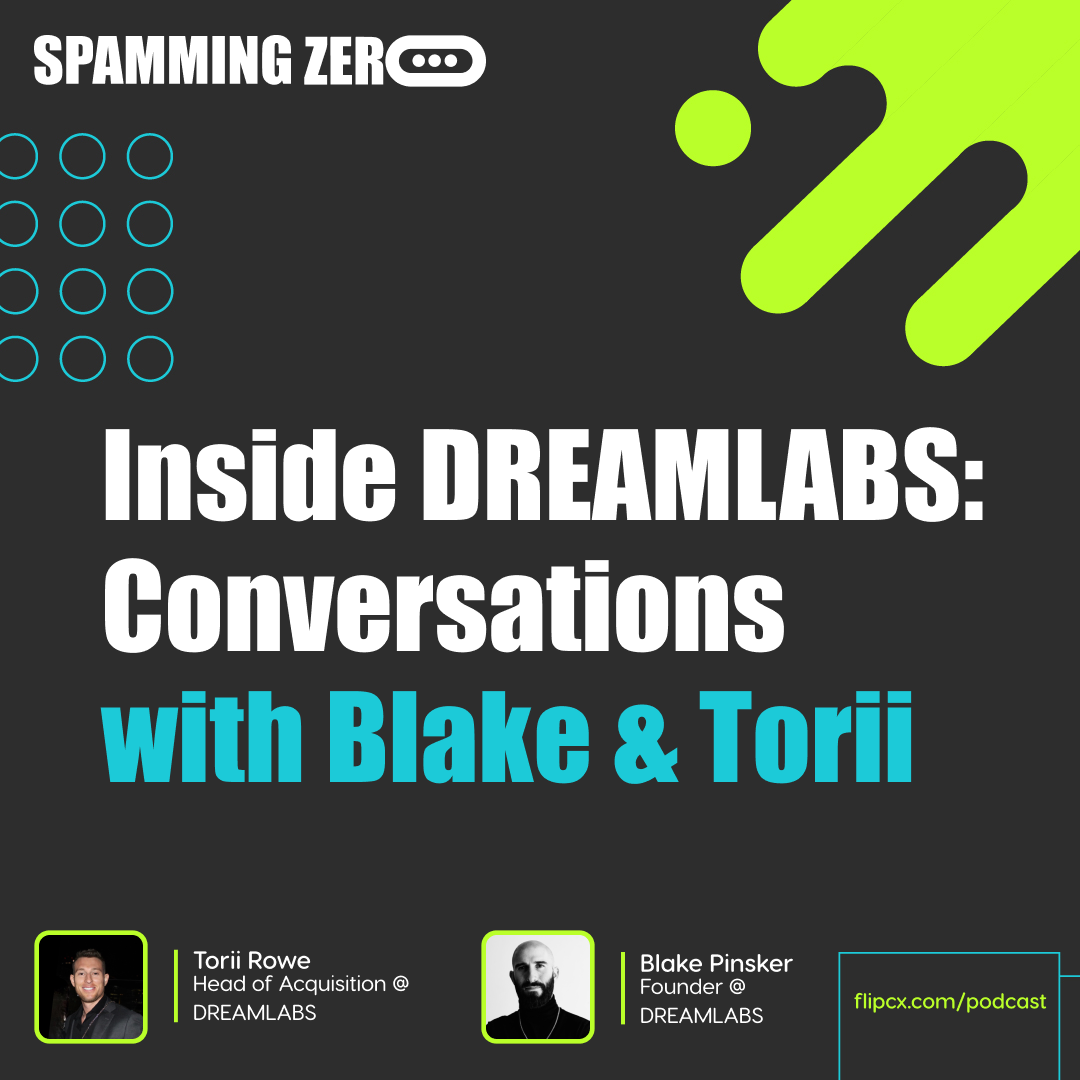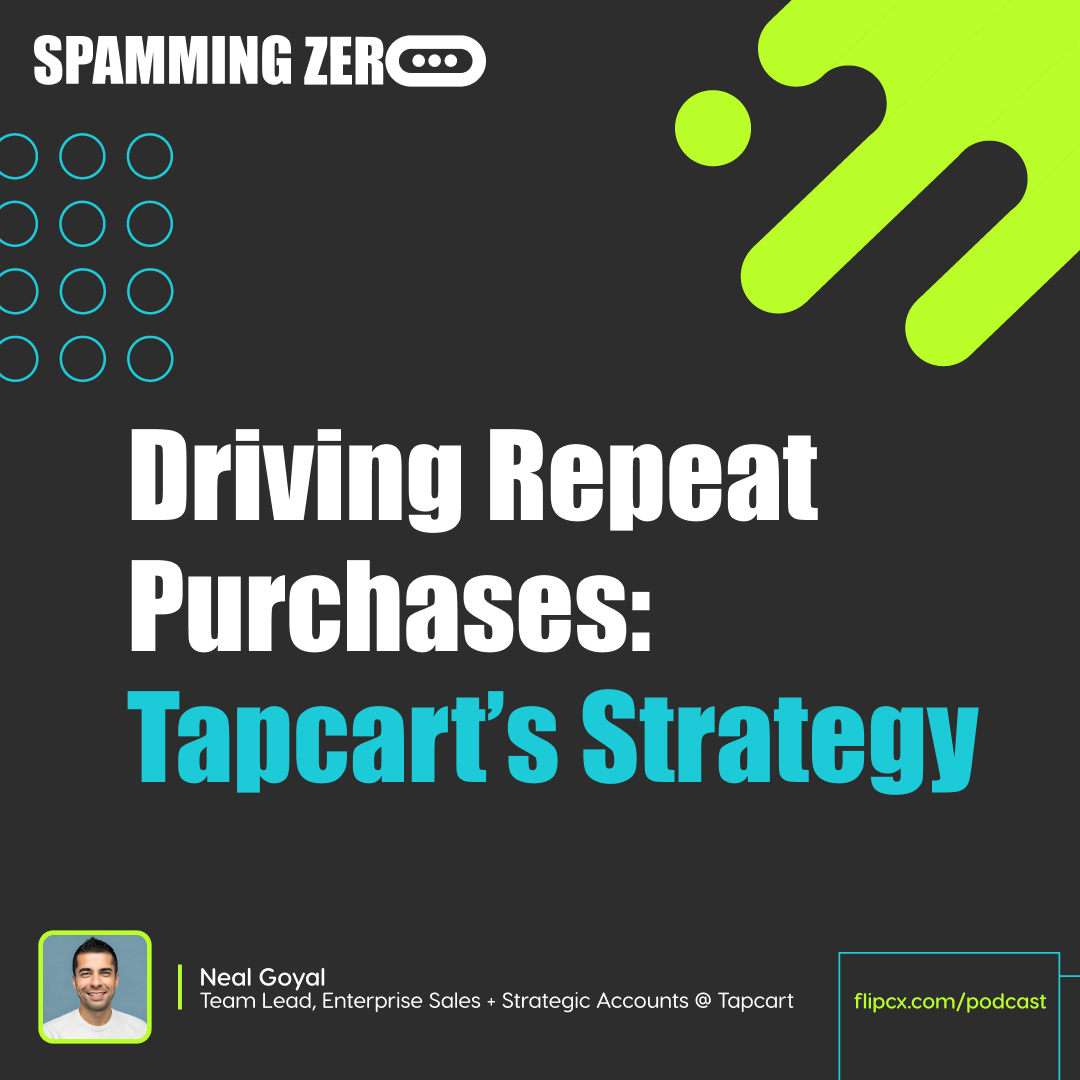Episode 9: Customer Experience Strategy As A Revenue Driver, with Jack Lorentzen of Brooklinen
- 0.5
- 1
- 1.25
- 1.5
- 1.75
- 2
James: I'm James.
Brian: And I'm Brian.
James: And this is Spanning Zero. Jack, welcome to Spanning Zero.
Jack: So happy to be here, guys. Thank you for having me.
Brian: I'm excited for all the episodes, but I'm really excited for this episode.
Jack: The pressure's on.
James: Jack's very first episode as a podcaster. Yeah?
Jack: Brand new. First time.
James: All right. Today, we are going to be talking about customer experience strategy being a revenue driver. And, uniquely, you have had an opportunity to build a CX career. So, I want to dive into that. So, Jack, from your own perspective, why do you think customer experience especially has been seen as more fluff? We talk about this a lot, especially recently. And, it's almost seen as a luxury, and that it's not a need. And how do you think the businesses should be thinking about it and how can they change that mind frame?
Jack: So, I started in CX, at least at Brooklyn Inn back in 2016. And I think, I really wasn't as an associate. I really wasn't really trying to get too involved in the money that our team was spending, because I don't think I needed to be as an associate level. And then, as I started growing up in this role, I really started getting involved in all the funds that my team was spending. And, I think that's really where the CEO goes first, when they're looking at a CX operation, they're like," This is how much they spent on BPO. This is how much they spent on their help desk platform for the year." Whatever it may be. And, when they look at that cost, it's really scary. It's like," Do I need to spend this much on CX?" And, I think, where it really comes to fruition for me would be, all those money that we're spending and how it's coming back to us. And I think, the way it's coming back to us is not always that measurable. So, someone on the growth marketing team... I love talking about our growth marketing teams. They're extremely successful. They're really good at what they do. But I would say... I don't think there's a but. I would just say that, with their roles, it's much easier to see," Hey, here's how much money I put into something and here's exactly what I got out of it." Right? And I think the money that we put in CX, certain areas are really hard to measure the output of what we're getting with our funds that we're inputting into the operation. A really quick example would be, it's really easy for us to see money that we're making on live channels right now. That would be a really quick example. So we could tell anyone on my business here's how much money we made on live chat, for example, over a month's time, because Shopify will connect with live chat and we'll see those funds actually come about and we'll feel good about those. I think, ways that I'd like to talk through with you guys today would be creating loyalty by a way of great experiences. So those customers are coming back and spending more money with us. I also think, how we solve problems is creating loyalty, and also just how we're helping them. If we really help a customer with a product question by giving them a personalized story, that customer's funds... We might not be able to measure the money we're making from that customer this very moment. But two years from now, I can guarantee that, that customer's coming back and spending more money with us.
Brian: This is the devil in the data, right? Everybody celebrates being data- driven. And, sometimes you get so blinded by the data that you stop using your human brain. And we talk about this a lot in our own growth engine, as we think about acquiring customers and growing the business. And, one of the things that I always say is, the data that we have access to is an asset. And we should learn what we can learn from it, but we should also keep it in perspective. And, we should understand that data is part of the story. It is one piece of information that's coming to the table, but you can't get blinded by it, because it's almost just a straight path to a place you don't necessarily want to be.
James: Well, the other thing too is, Jack, your growth team works for a D- to- C. You guys are a D- to- C brand, right? And, this is a real life fan that I'm going to be talking of Brooklyn Inn here. So check this out. My wife found you guys through an influencer on Instagram, who you're not paying, I know that for a fact. But just an influencer started talking about Brooklyn Inn. I promise you, there's no way that you knew that, right? There's no way that your growth team can measure outcome on that. So, there are also a lot of things that create really good brand experience. And quite frankly, all of a sudden my wife was like," Don't believe everybody on Instagram." She comes back sometimes, I'm like," What in the world are you talking about?" Now, I love her to death. But this is true, right? The influence of what happens with products, apparel, anything that has a connection with somebody that we trust or we even somewhat want to follow or be like, or they have a persona online, there's an opportunity for that to create a good experience. And, it did for my wife. So much in fact, she tries to get me to buy Brooklyn and stuff, all the time. I'm going to have to tell her," Slow down here."
Jack: Oh, we don't want your money. No.
James: "We have to slow down." But the thing is, is you bring up a really good point on this whole idea of experience, and creating experience that yields a fan. And to do that, I think that you naturally have to have it be an initiative where you highlight that. And I think, what's often happening with a lot of brands that I see is they don't share those stories enough. And I know that's one little story. But I would put money on it, that if you took your CX strategy and you were able to share some of these amazing fandom experiences that people have with the product and they just love it. I would imagine that, that would be enough to convince like," Hey, maybe you don't cut the budget." I don't know, maybe I'm crazy. But I genuinely think it would be, because you can then also say," And look at how many more people this got in front of, because of that one good fan experience."
Brian: Yeah, when you don't have data, anecdotes and examples are a great way of telling the story.
Jack: Which is an incredible point. But, once again, I'm in this data mindset at all times. Brian, you said, data's king, right? But, personal experiences are so important to tie it into our brand. It's paramount. It's so hard for us to measure. And for us to say," Hey, someone reached down and told us about how our product changed their weekend for X reasons." Or they took it camping, they had an amazing experience with their partner. They're getting married now, or whatever it may be. But, it really is hard for us to measure those experiences. However, those personalized experiences that even my agents talk through when a customer's on the fence, or a customer's thinking themselves like," Hey, I'm not really sure about which product to go with." Me jumping in as an associate and saying," Hey, Luxe is our best seller, but if you're sweaty as hell throughout the night like me and you really just need something that's more cooling, classic is the way to go." And customers really do listen to those stories. And, when they tell us their stories, oh my God, that's even better.
Brian: So it's funny, the classic thing, and I think that it's so often now, it's been said so repeatedly for so long. And it just has almost run out of steam is," We're going to take the cost center, we're going to turn it into a revenue center." The idea, the image that I've been starting to play with a little bit more is, how can we... And what needs to be done to start to get executives looking at these inbound outreaches from customers as something that is valuable and thus is a metric that you want to maximize instead of a metric that you want to limit? Right now, so much of the strategy is," How can we reduce the customers that are reaching out to us?" Even though these are the same people, where we're laying our heart and our soul on the line to get their attention and get their affection. And then, we're hiding from them and trying to stop them from engaging back with us. That is so, at a human level, backwards. So, what needs to happen to, not necessarily, make it about dollars, and cents, and cost, and revenue, but how can we just change the mindset from, this is a metric that we want to minimize, to this is a metric that we want to maximize?
Jack: I love that point. I think it feeds into how my team might be currently looking at average handle time. And, how we want phone calls to be quick, for example. But we also know that someone's calling in because they want to connect with someone over the phone and have a personalized experience. So, how can I tell my agents that, I want them to be under X minutes consistently? And then, also say," Hey, I want you to give them the most personalized experience ever on the phone." We can't have both ways. I think being a little bit more filtered with how we look at KPIs and the goals around them are extremely important. I think, we have a ton of KPIs that we're out checking out all the time, but average handle time, for example, I'd really like to look at conversation reasons within average handle time, so that I know which types of calls should be quick and which calls maybe we can take some more time on, because the customer is really asking for that without them really even saying that they're asking for that, right?
James: I think that there's, probably... I mean, it probably doesn't exist today, but I would think that being a data guy myself, you would have some triangulation that could exist there. You just mentioned two data points. You mentioned, average call time, right? So, the time in which it takes in which you get a resolution and that call is completed and finished. So there's that. That's a measurement. And then the other one is like," Okay, well, I also want my agents to be creating more personalized experiences." So, if for example, you have set amount of calls that are longer than normal. Then, maybe the first thing to do is look at how many of those calls that were longer than normal actually turned into a personalized experience, which is what you're saying. And then, the third piece of that is, look at how many of those then turned into more orders and volume. And when you triangulate those three pieces of data, you have a formula that is helping you then decide which one you should do in certain moments. And then, you become a little bit more predictable.
Jack: I love it. And the outcomes... James, I think it's a great point. And, just another example there, if a customer's calling in about a shipping issue, and it's more urgent, and let's say it's around the holidays, which is obviously our Super Bowl. It's more along the lines of, we would be looking at a very short period of time that I'd want my agent to be on the phone with that customer. Now, in opposition, a customer's calling in, it seems like they really want to connect with someone about a product that they're trying to buy. They're telling us all about their family and what their family's preferences are. Next thing you know, we're on the phone for 12 minutes, those calls turn... I mean, we're creating such a great relationship with the customer, the customer's choosing to purchase from us, and then choosing to purchase with us again and again, because of that 12 minute phone call, or whatever it may be. However long that call was. I know that it was time well spent.
Brian: How do you think about upselling in these moments? So often in this conversation about CX being a revenue driver, it turns into the agents having forced scripts that they need to read and try to take these people that are calling in with a problem that who knows what exactly has gone on, who knows what the quality of that experience is. How do you think about upselling as a part of the strategy of the team, and where it fits in, and what exactly are you trying to upsell? Is it new products? Is it signing them up for things? How do you think about all of that?
Jack: Sure. I mentioned this in the webinar that we did in March. So, I'm really happy that you're bringing this up again. I think, upselling is a word that I want to be careful with and I want to make that very clear. I didn't hire sales people to be on my team. I hired people that are going to resolve issues and create relationships with customers by way of resolving issues. So I think, the upselling piece really falls into a part of CX that I'm still figuring out how to teach, and that is using your best judgment. I think when an agent can use their best judgment and say," You know what? This customer clearly does not know we have a partner product that goes with this." Or," The customer seems like it's the first time they're on the site. They probably don't know that we have shower curtains that might match this bath mat." For example. I think using your best judgment to upsell and even finding another word for upsell, because upsell makes me feel slimy. I'm not trying to get more money from the customer than they were trying to spend with us. That's never what we're trying to do. It's more about enlightening the customer and helping them realize that other products on our site can make their lives better too. I want to touch on what I was talking about earlier on in this chat, which would be, creating such a great brand experience, especially by talking about our products, that the customers really feel like they're talking to an expert, because that's really what I want my agents to be, experts at the product. So, if the customer really feels like they're talking to a expert who also has experience with the product they're talking about and personal stories, then the sales start coming in, of course, because that makes sense. It's not really about looking for like," Hey, can we sell more?" It's about," Hey, let's give them such a great experience that the only feasible option would be, of course they'd want to buy more from us."
Brian: I agree with you wholeheartedly on that. And, it is the classic person who is not in CX that is trying to jam that message and that hard upsell strategy down the throat. And I've actually been playing myself in thinking about like, what is the right term, and what are the right things to encourage, and what are the right moments in these interactions to do it? And, I'm just trying on for size here. I like to think about it as, right, the most logical place to me is at the end of a successful conversation where you were able to help somebody and it's clear that they're pleased with the service that they received, introduce them to a" next best action" that will bring them deeper into the brand. So, this is where it can be very collaborative between CX and marketing to start to understand, right, what are these things? What are these aha moments, these milestones in the customer journey that lead people to have great long lasting relationships with the brand? And, how can we then bring those things into the customer experience and into these interactions that are going on and encourage those rather than come in with a hard sell?" You just finished your call, you're in whatever state of happiness, and now I need to follow this script and I need to give you a hard sell to go and buy some new product that's on sale." Those are just so distasteful.
James: It reminds me a little bit of the people also bought strategy that's, oh yeah, I don't really know who came up with that. But, I see it in Amazon, when I go and buy stuff in Amazon, I see they got," These people also bought..." And I see a lot of brands also...
Brian: Who?
James: Well, this is a recommendation, right?
Brian: The best is Netflix with their top 10 recommended shows and they're all Netflix produced shows. Yeah, these are the 10 shows that are most popular, word. These are the 10 that you most want me to watch because it's best for your business.
James: I definitely think that the line can get hairy with an organization being self- serving in those areas, right? But I think, the example that you gave of what your agents are doing and what your people are doing to try to create that experience and making a recommendation on what you said, a bath mat with a shower curtain that matches, I think that's different. I think that's why you're saying," I don't like to use the word upsell." It's more," I just want to empower the customer to see the full value that they can get out of this." Just get rid of upsell and replace it with empower the customer to make better decisions. And really that's what we're doing in these moments. And I think that I love what Brian said, because bringing that next best action, it reminds me of early days in 2014, I was working for a company called Cloud Tree. We had a customer experience platform. And part of our product did this thing where it consolidated all the analytics of CX and all that. And it made it a predictive outcome and a recommendation directly within the product. And, it was one of the coolest features that we had in the product. And, it makes me wonder a little bit, why that is not happening more and more? There is so much data on this stuff. And, the amount of traffic that just a single customer has and a repeatable buyer that you all have, Jack, just consolidating that and make it predictable to be like," We can tell their behavior." But it's not being operationalized. And then this comes back to your whole point on data, is I think that the data is too siloed and it's not operationalized enough. It's not brought in a way to where it can be acted on, which is what... In order to get to the point of next best action, you have to have the data so that it can be acted on.
Jack: And when I look at all the data that we take on a weekly basis, I usually do it on Mondays and Tuesdays and look at the previous week. It's just like," What questions am I even trying to answer?" Right? So, I could answer a question around average handle time, versus CSAT. Or I could answer a completely different question with the same exact KPIs involved, right? So, I think it's really taking a step back and really trying to think about what questions you're really trying to answer. And then, you could take the data and make it actionable. But, you're right, I do think it's too siloed. And I think that it takes a lot of work to un-silo it, de- silo it.
Brian: Jack, you look at the data, you spend time with the data, what are some things that you've uncovered, insights, learnings that you've then been able to bring back into the organization that have influenced decisions that other departments made, influenced the way that people thought about certain things? What are some of those golden nuggets that you've found in your time?
Jack: I think, lately we've built out a few sub teams on my team that I'm really proud of. And, it leads into more of the careers that we're building in CX right now, which is something that I would love to talk about. And, I think really, let's start with quality assurance. That's something that my team is really, really pumped up about. So, if we're seeing trends in quality assurance scores for certain agents are skewing lower, and then we can actually see that those lower skewing scores are attached to a policy. Let's say, it's a warranty policy. Then, what happens out of that? An incredible conversation takes place with our production team. And then, a bunch of different projects come out of that to say," Hey, this part of the warranty might not make the most sense for our customers, because our agents might be struggling with it in terms of communicating the policy and our customers clearly are not happy with it." And this is totally as broad of an example as I can think about. The reason why I love CX so much is because it's so cross- functional. It's so intermixed with every other team at my business. So that's why when we started out... Or any business. But James, when we started out saying that the idea around people not even giving CX the time of day in terms of, hey, should they be even spending this much money as a team? We're invested in every other team. The frontline workers are hearing exactly what they have to say about every other team's decision that's being translated into what the customer sees. A really quick example would be, a customer one time called... Well, I was on the phone at the time. I was a phone agents, yes. I was one of the only people on the phone on a daily basis. So, a customer called me one day, we had a great experience. He ended up buying something. And then two days later he called me and was like," Hey Jack, I was at a dinner party this weekend. We all live in Brooklyn. We were all laughing about this Brooklyn Inn ad that was on the subway. And, I want you to help me understand it." And I was like," Okay." And our design team and our creative team in general has been creative, for lack of better adjective with some of the ads they've put forth. So, one of our campaigns was for X or Y. So it'd be for, the one that I'm thinking of, the sheets for throuples or three's a crowd. And the three's a crowd sign was two people in bed with their dog. And then the throuple sign was with three pairs of feet at the bottom of the bed. And the guy wanted me to explain to him what a throuple was. So, I spent five to seven... I don't think I talked for that long, but I talked to this guy about what a polyamorous relationship was all about. I don't think I was prepped to talk about this. I hope this is appropriate to talk about right now. But, a decision made by our design team translated right into a dinner party in Brooklyn, which came right back to the frontline workers at Brooklyn and me being one of them at the time. So, I mean, even talking to the design team and letting them know that someone asked about that, they were like," Really? A customer really asked about that?" And I was like," You should hear all the things that our customer ask about, because there is a myriad of questions that come in on a daily basis." I was happy to answer it, but it was just a nice way to create a full circle with a team at HQ that we really don't collaborate with that often, which I thought was valuable.
Brian: Is it safe to say that, if you believe in talking to customers, then you believe in the value of good CX?
Jack: I would say so. But I would say-
James: Brian dropping fire like this, just with the one liner sums up the podcast, you might as well just hang up now, finish.
Jack: ...I would say, but it goes beyond talking to them, because I think a good agent can talk to the customer all day, create solutions for them. But I really think a great agent and an exceptional agent is talking to them and really listening to them. And, not waiting for their turn to speak, but really hearing them out. And, really hearing about what the customer is... Whether they're looking for a$5... I always say this example, but I'm passionate about it. Whether the customer's looking for a$ 5 refund, or they're looking to drop$ 5, 000 on our site, we need to create strategies and answers for any question that falls within both of those customer profiles, right? Anyone in the middle, or any types of problems they're having, or if they decide to tell us what's going on in their personal life, I need to know that my agents are listening to them and commenting on it.
James: You know what I think would be a fascinating exercise? I think it would be so interesting to have a group of agents, frontline workers that handle calls. And, they are in a room that the C- suite has visibility into. It's almost like the good cop, bad cop scenes in the movies. And, somebody's behind, you don't know that they're, but they're there. Okay, so the C- suite is behind this window, right? And all of the agents are in this room and they're unveiling all this stuff, right? And then, the C- suite comes in and they don't get to say anything. It's just the agents. And then, eventually after everything is revealed, then the agents get to ask the C- suite," Okay. How are you going to solve this?" That should freaking happen.
Jack: That'd be an interesting working session for sure.
James: You mentioned this in your story though. And I love how you brought it all back, because you're right, no matter what we do in marketing and in sales, no matter what, the frontline workers have to deal with it. And how often does marketing actually talk to the frontline workers before they built that ad? Probably not very many times. That's my guess. And how many times does sales work on their elevator pitch to ensure that the pitch that they're giving and the promise that they're giving is the one that can be delivered?
Jack: Sure.
Brian: Executives take time to speak with customers because it helps them understand the customer better, it gives them these little nuggets of information and insight that allow them to better run every aspect of the business. The agents are talking to the customers every day, right? Your CX team is talking to customers every day. There are so many nuggets of information that are valuable to the other departments in the organization. And it becomes a question, right? Here, we are back again at data, it becomes a question of how can we capture this data and then how can we disseminate the data?
Jack: Sure.
James: Let's double down on some of this career path that you've had. I mean, you've talked about how you've been managing some agents and how you leverage that information, how you pull it upstream, how you bring it full circle. What in your mind is the piece of advice you'd give other people who want to try to build a career in customer experience?
Jack: For me to even sit here and say that I've filled a career in CX feels really good. So, I'm very excited to say that. And, I think it started with a passion to help people. And, I think that's really what it started as. And, I think, when people look at creating a career in CX, a lot of times they look at CX as a stepping stone. And I have some great HQ colleagues right now that have started in CX that moved on to different teams. And I think that's great. That's awesome. But, I think, when it comes to really building one in CX, I feel like I've really started to get involved in just all... I mentioned the sub teams part earlier. And I think that bringing sub teams into this conversation and really realizing how multifaceted CX really is, is how we start creating careers out of it. And, one of my passions is people management. And, I organically gotten to a people management role. And, I was extremely excited about that. I've worked with a lot of different remote teams and a lot of different people right in the office. And that's something that I really wanted to build on. And then I want to bring up another example of someone that I truly has believed has created a great career in CX two is my colleague, Casey. Casey really got onto the team, realized that we needed a quality assurance solution. And, she really took that quality assurance solution and created a sub- team around it. So, it's really addressing the idea how multi- faceted CX can really be, and then figuring out what your passion is within that. I mean, taking a step back, if you think CX is going anywhere, it's absolutely not going anywhere anytime soon. Any successful brand is realizing how important it is to have a healthy and productive CX function. So, we talked about how multifaceted it is, figuring out how multifaceted it really is at your organization. What other parts of it can you really pick out that you could say," Hey, I really want to build on this"? Is it training? Is it QA, like I mentioned? Is it social CX? Is it CX within social media? That's another rising part of CX right now. But I do want to say one more thing, I think, something that I really want to see, I mean, more of not only at my business, but I think across the board would be, if you want to grow in a certain direction, let your manager know that you want to grow in a certain direction, so that they can facilitate it. I think, one of the worst mistakes I ever made was thinking that my manager was going to create a growth path for me. And, one day I approached my boss at the time, Julia. And, we had a really productive conversation about where I wanted to take my career within CX. And she was like," Jack, that was just the biggest'aha' moment ever. You told me what you want to do with this career. And now let me help you facilitate that." So I think it was multifaceted, like I said, there's a lot of moving pieces. But, I found a passion within it and I really decided to execute and really make it grow. And no one else is going to make it grow for you though. That's something that you got to do yourself.
James: Well, if there's one person that you should listen to when it comes to building a career in customer experience, you are definitely it, which is a big reason why announcement time. You're going to hear Jack on our show much more.
Jack: There we go.
James: So that's a little teaser for the future. We are getting close to time and I want to be respectful of Jack's time, because I know he's a very busy man. So, we'd like to end our podcast with just something totally random, like how we started. So bringing it full circle. Jack, tell us about an experience that you've had that has left vivid memories for you in your life? Unrelated to customer experience altogether, if you want.
Jack: Okay. I am an adrenaline junkie. And, my childhood obsession was roller coasters. And in 2005, when I was a sixth grade, I think I was in at the time, Kingda Ka opened up at... It was Six Flags Great Adventure, which was the tallest and fastest roller coaster in the world at the time. And, I think now it's only the tallest. It might not be the fastest anymore, but I've never been so excited about something in my entire life. We were at Great Adventure. I think it opened on May 5th. I think I was there two weeks later riding that thing. And, that's what came to mind. That's really what came to mind. Something in 2006, to be completely honest.
James: Jack, thanks so much for joining us on the show. It's been awesome.
DESCRIPTION
All about the cold, hard cash these days? Well, then you certainly wouldn’t want to invest in all that fluffy CX, right?... WRONG!
A solid customer experience strategy is—among many other essential things—a revenue driver. How? Jack Lorentzen, Senior Manager of Customer Experience at Brooklinen, joins us to answer that very question. This week, on RedRoute’s Spamming Zero Podcast.
What’s Covered?
- Luxury vs. Necessity: shifting your mindset around CX
- Measuring the tough to measure – metrics and data to support CX
- How Jack feels about “upselling”
- Cross-org support for customer experience
- Believing in talking to customers = believing in CX
- Building a career in customer experience: Jack’s top tips
- And more
Spoiler Alert: Spamming Zero listeners can look forward to hearing a whole lot more from Jack in the near future (woot woot!)… Details to come ;)
Ready for more fantastic Spamming Zero conversations ahead? Listen, rate, and subscribe on Casted, Apple Podcast, or Google podcasts.
Today's Host
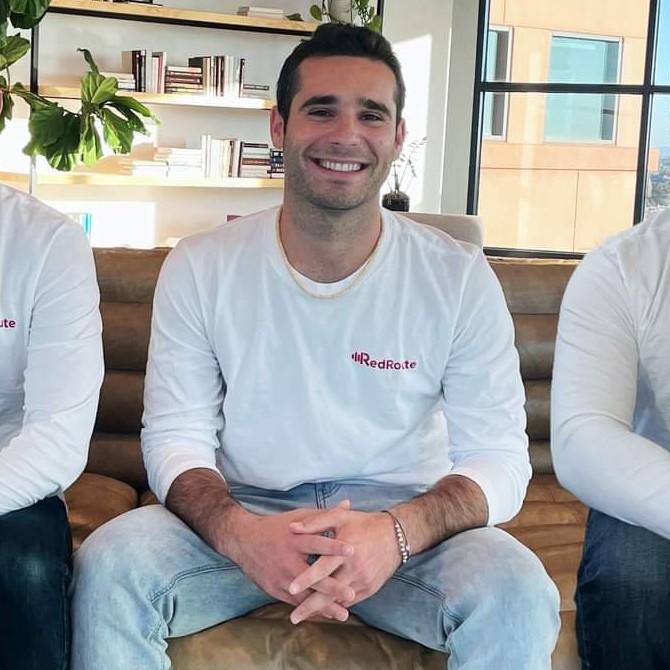
Brian Schiff
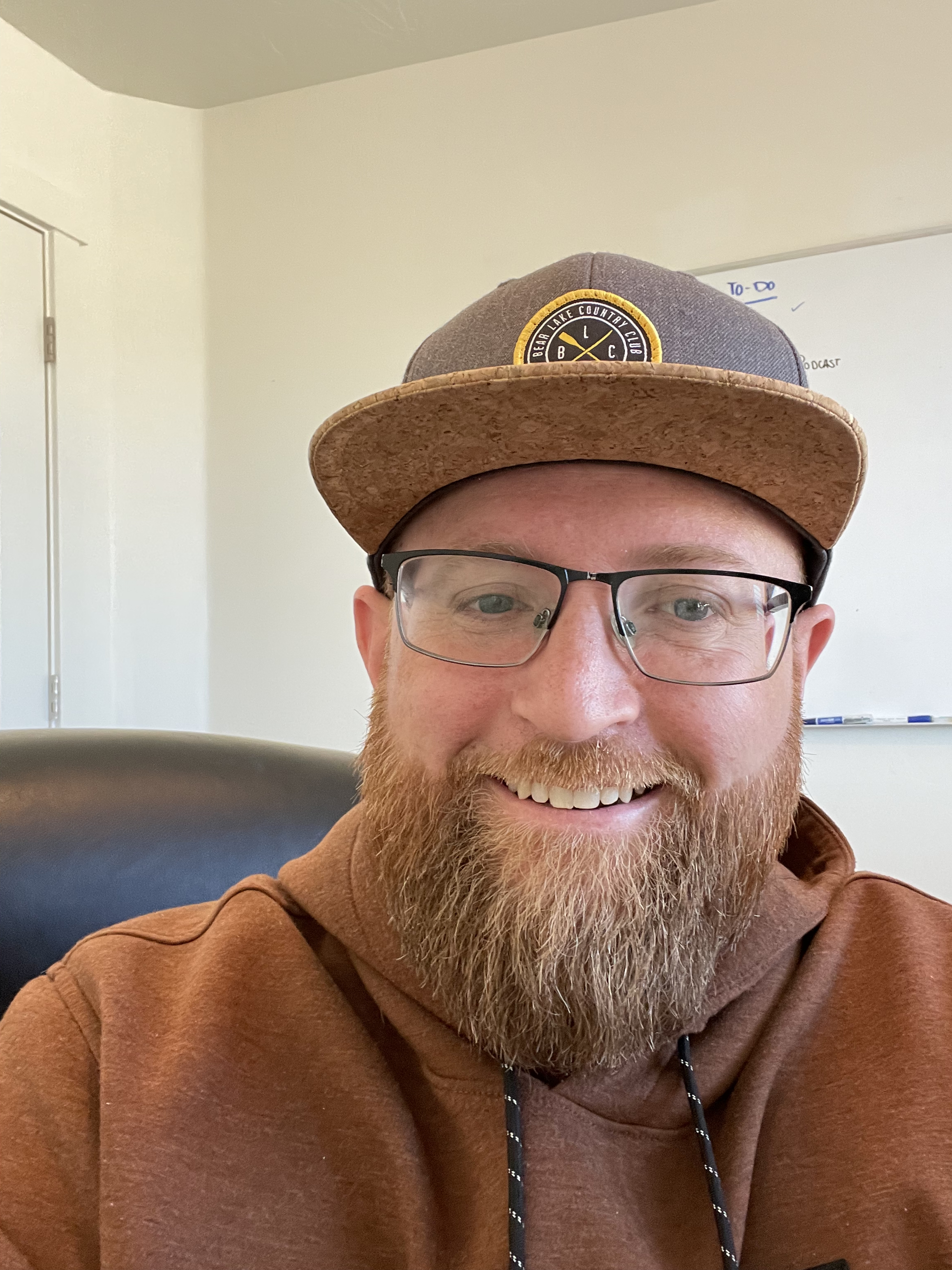
James Gilbert
Today's Guests
